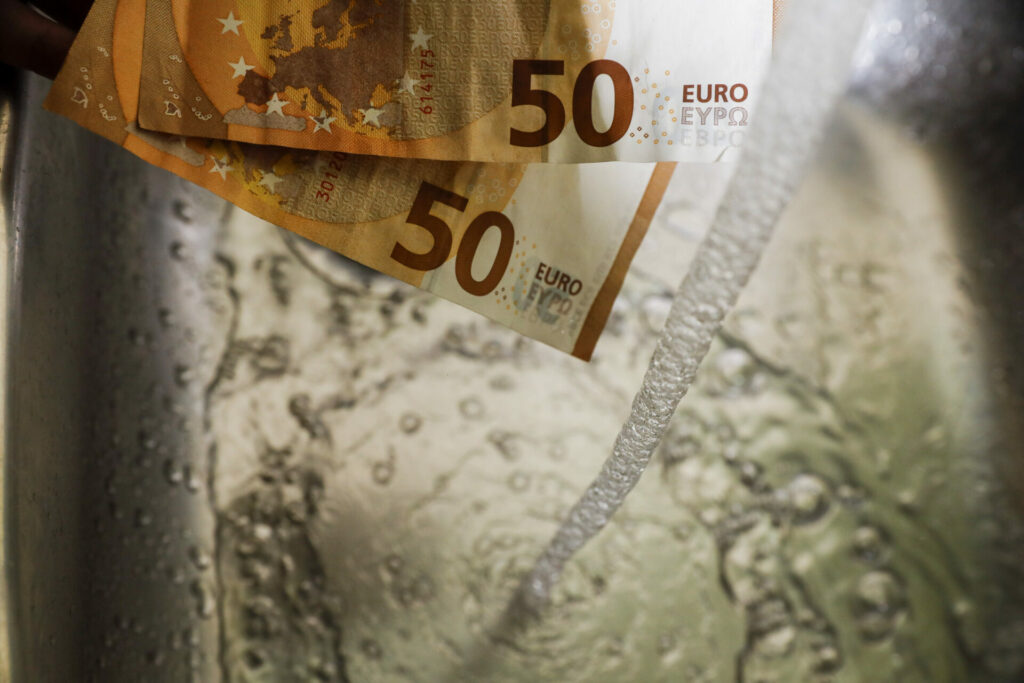Two requests have been made since 2021 to increase tapwater prices in Brussels, which centrist French-speaking political party Les Engagés has said is a symptom of much deeper problems with "potentially serious consequences for the taxpayer."
This weekend, it was reported that inter-municipal water utility company Vivaqua sought to increase tap water tariffs by almost 15%, just two years after it made a similar request. Water prices are not automatically indexed, and the company noted its revenues no longer cover costs, which have exploded due to inflation.
The cost of work on the network and production infrastructure reportedly increased by an average of 19% in 2022 and staff salaries were indexed five times, representing an additional cost of €10 million. Vivaqua argued that the indexation of tariffs is necessary for the "continuity of its essential activities for the Brussels population."
Chaos and debt
Christophe De Beukelaer, MP for Les Engagés, argued that the price hike is a symptom of the more widespread issues the sector is facing.
In a statement, he referred to the "chaotic IT management," which saw many residents not receiving their water bills for more than seven months. "They will find themselves in a complicated financial situation by receiving large water bills in a difficult economic context," he warned.
De Beukelaer also referred to the company's "extremely worrying financial situation," revealing it is experiencing an "explosion of unpaid bills" — €61.5 million at the end of 2020 — and an accumulated deficit of €1 billion.
He argued that the knock-on effect of this on the region is "cause for concern," as it has granted millions in loans and subsidies to help Viviaqua stay afloat, and that this has resulted in the postponement of major investments, particularly in the modernisation of the sewage network, which "is in a very poor state."
"I don't think the government is aware of the scale of the problem in the water sector in Brussels. Vivaqua poses a systemic risk for the Region with potentially serious consequences for the Brussels taxpayer," De Beukelaer said.
Guaranteed access for the vulnerable
He questioned what Alain Maron, Brussels Minister for the Environment, was doing about the situation, and called for transparency of the situation and various reforms, including a merger with Brussels Society for Water Management (Hydria).
In response, Maron did not refer to a possible merger but noted he would bring both parties to the table to discuss steps to guarantee drinking water for vulnerable households. He will also propose to increase the amount of the social allowance for some 160,000 affected households.
"It is essential to guarantee access to quality water for everyone in Brussels: private individuals, including the most disadvantaged, but also commercial and non-profit companies. I will continue to work in this direction so that water becomes a common, protected and accessible good," he stated.
Related News
- Brussels tap water price could soon be raised by 14.5%
- Wallonia's government approves 2022-2027 flood risk management plans
The minister also noted that, despite the request for a tariff increase, the price of water in the Brussels Region will remain among the lowest in Belgium.
He added that an investment capacity is essential to continue the renovation of the sewerage network, reduce the risk of flooding, and maintain water supply capacity during periods of drought, which "will become increasingly frequent."

